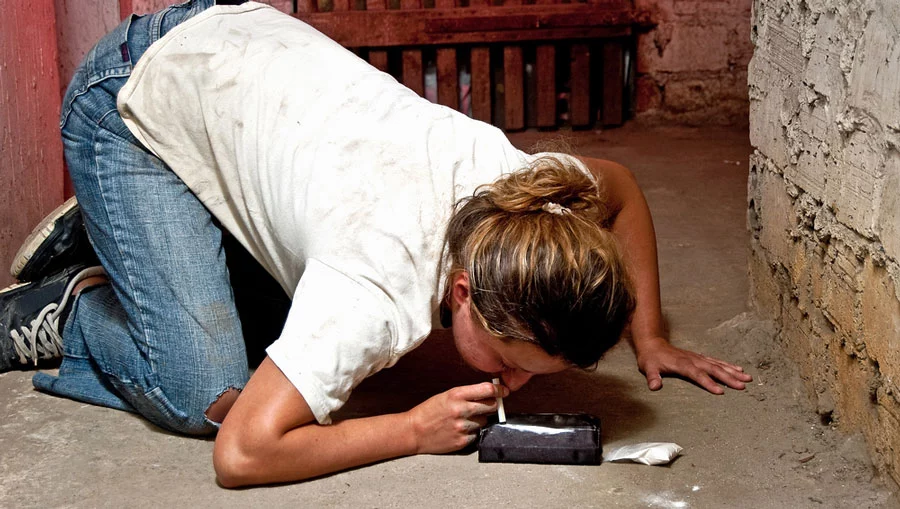How Long to Rewire Brain from Addiction: Insights & Tips

It takes time to rewire the brain from addiction, and the process varies for each individual. Breaking free from addiction is a challenging journey that requires rewiring the brain.
The length of time it takes to accomplish this varies from person to person, as it is influenced by several factors such as the type and severity of addiction, the individual’s commitment to recovery, and the availability of support systems.
While there is no definitive timeline, research suggests that it generally takes at least 90 days for the brain to start rewiring itself and for new neural pathways to form. However, it’s important to note that addiction recovery is an ongoing process, and long-term changes in brain function can continue to occur for months or even years. Understanding the timeline of rewiring the brain from addiction can provide hope and motivation for individuals seeking recovery.
The Science Of Addiction
When it comes to addiction, many people wonder about how long to rewire brain from addiction. The answer is not a simple one, as it depends on several factors, including the substance being abused, the length and severity of the addiction, and the individual’s overall health and well-being. However, understanding the science behind addiction can help shed light on the process of rewiring the brain and overcoming addiction.
Brain Chemistry And Dependence
One of the key factors in addiction is the impact it has on the brain’s chemistry. When a person uses drugs or alcohol, it triggers the release of dopamine, a neurotransmitter that is responsible for feelings of pleasure and reward. Over time, the brain becomes dependent on these substances to release dopamine, and the individual can no longer feel pleasure or reward without them. This leads to a vicious cycle of addiction, where the brain craves the substance to feel normal.
Neuroplasticity: The Brain’s Ability To Change
Thankfully, the brain has an incredible ability to change and adapt, known as neuroplasticity. This means that with the right treatment and support, individuals can rewire their brains and break the cycle of addiction. However, this process takes time and patience, as the brain needs to form new neural pathways and learn to function without the substance.
Research has shown that it can take anywhere from several weeks to several months for the brain to begin rewiring itself after stopping drug or alcohol use. However, the length of time it takes to fully rewire the brain can vary widely, depending on the individual and the severity of their addiction.
In conclusion, the science of addiction tells us that rewiring the brain from addiction is a complex process that requires time, patience, and the right treatment and support. By understanding the brain chemistry and the brain’s ability to change, individuals can take the necessary steps to overcome addiction and achieve lasting recovery.
Timeline Of Recovery
Rewiring the brain from addiction takes time, but the timeline of recovery varies for each individual. The process involves breaking old habits and forming new ones, which can take anywhere from several months to a few years. It requires dedication, support, and a commitment to making positive changes in one’s life.
Timeline of Recovery In the journey to rewire the brain from addiction, understanding the timeline of recovery is crucial. Early Stages of Rewiring – First 24 hours: Detoxification process begins. – Days 1-7: Physical withdrawal symptoms may peak. – Weeks 1-4: Emotional and mental adjustments start. – Months 1-3: Building new habits and coping mechanisms. Long-Term Healing Process – 3-6 months: Brain begins to rewire neural pathways. – 6-12 months: Increased emotional stability and clarity. – 1-2 years: Solidification of new behaviors and thought patterns. – Beyond 2 years: Continued growth and reduced risk of relapse.
Factors Influencing Recovery Duration
Recovery duration from addiction is influenced by various factors, including the individual’s brain chemistry, the type of substance used, the duration of addiction, and the presence of any co-occurring mental health disorders. Additionally, external support systems and the individual’s motivation play a significant role in the rewiring process.
Type Of Substance
The type of substance that an individual is addicted to can significantly impact the duration of their recovery. Different substances have varying effects on the brain and body, making the rewiring process more challenging for some. For example, opioids like heroin or prescription painkillers can create a strong physical dependence, leading to a longer and more intense withdrawal period. On the other hand, substances like marijuana or stimulants may have a shorter withdrawal period, but the psychological cravings and rewiring process can still take time.
Duration And Intensity Of Use
The duration and intensity of substance use also play a crucial role in determining how long it takes to rewire the brain from addiction. Someone who has been using a substance for a prolonged period and in large quantities may have a more deeply ingrained addiction, requiring a longer recovery period. Additionally, individuals who have experienced frequent relapses or a history of chronic substance abuse may have a more challenging time rewiring their brain pathways, extending the overall recovery duration.
Individual Biological Factors
Individual biological factors can vary greatly and affect the pace of recovery from addiction. Factors such as genetics, overall health, and underlying mental health conditions can influence the speed at which the brain rewires itself. Some individuals may have a genetic predisposition to addiction, making their recovery journey more complex. Co-occurring mental health disorders, such as depression or anxiety, can also impact the rewiring process, as these conditions often require integrated treatment alongside addiction recovery.
Overall, it is important to recognize that the duration of rewiring the brain from addiction can vary from person to person. The type of substance used, the duration and intensity of use, as well as individual biological factors, all contribute to the length of the recovery process. It is crucial to approach addiction recovery with patience, understanding, and a personalized treatment plan tailored to the specific needs of the individual.

Credit: www.southshoresrecovery.com
Detoxification: The First Step
Detoxification is the first step towards rewiring the brain from addiction. The duration of this process varies depending on the individual’s addiction level, but it typically takes several weeks to months to retrain the brain’s neural pathways.
Detoxification is the first step in rewiring the brain from addiction. It involves removing the harmful substances from the body, which can be a difficult and uncomfortable process. However, it is necessary for the brain to start healing and creating new neural pathways. In this section, we will discuss what happens during detox and how to manage withdrawal symptoms.
What Happens During Detox?
During detox, the body goes through a process of eliminating the harmful substances from its system. This can lead to a range of physical and psychological symptoms. The severity of these symptoms depends on the substance abused, the duration of use, and the individual’s overall health. Physical symptoms may include sweating, nausea, vomiting, headaches, muscle aches, and tremors. Psychological symptoms may include anxiety, depression, mood swings, and irritability.
In severe cases, individuals may experience seizures or hallucinations. It is important to note that detox alone is not enough to overcome addiction. It is merely the first step in the journey towards recovery. After detox, it is crucial to address the underlying issues that led to addiction in the first place.
Managing Withdrawal Symptoms
Withdrawal symptoms can be difficult to manage, but there are ways to alleviate them. Here are some tips for managing withdrawal symptoms:
- Stay hydrated by drinking plenty of water and other fluids
- Eat a healthy, balanced diet to provide the body with the nutrients it needs
- Get plenty of rest to allow the body to heal
- Engage in light exercise, such as walking or yoga, to help reduce stress and anxiety
- Consider seeking medical help to manage severe symptoms, such as medication-assisted treatment or therapy
In conclusion, detoxification is the first step in rewiring the brain from addiction. It involves eliminating harmful substances from the body, which can be a challenging process. Withdrawal symptoms can be managed through various methods, including staying hydrated, eating a healthy diet, getting enough rest, engaging in light exercise, and seeking medical help if necessary. Remember, detox alone is not enough to overcome addiction, and it is important to address the underlying issues that led to addiction in the first place.
Therapies For Rewiring The Brain
Cognitive Behavioral Therapy
Cognitive Behavioral Therapy (CBT) focuses on identifying and changing negative thought patterns and behaviors that contribute to addiction. It helps individuals develop coping strategies and problem-solving skills to manage cravings and triggers.
Mindfulness And Meditation Practices
Mindfulness and meditation practices involve cultivating awareness of the present moment without judgment. These techniques can help individuals recognize and respond to cravings and stressors in a more balanced and controlled manner.
Pharmacological Support
Pharmacological support involves the use of medications to address the biological aspects of addiction. Medications can help manage withdrawal symptoms, reduce cravings, and restore balance to the brain’s neurotransmitter systems.
Healthy Habits To Support Recovery
When it comes to rewiring the brain from addiction, developing healthy habits is crucial for long-term recovery. By adopting certain lifestyle choices, individuals can enhance their brain health and support the healing process. In this article, we will explore three key areas of healthy habits that can aid in addiction recovery: diet and nutrition, exercise and brain health, and sleep and recovery.
Diet And Nutrition
Proper nutrition plays a significant role in supporting brain health during addiction recovery. By consuming a balanced diet, individuals can provide their bodies with the essential nutrients needed for optimal brain function. Here are some dietary recommendations to consider:
- Incorporate a variety of fruits, vegetables, whole grains, and lean proteins into your meals.
- Avoid processed foods and sugary snacks, as they can negatively impact mood and energy levels.
- Stay hydrated by drinking an adequate amount of water throughout the day.
- Include foods rich in omega-3 fatty acids, such as salmon, walnuts, and flaxseeds, to support brain health.
Exercise And Brain Health
Regular physical exercise not only improves physical health but also has a positive impact on brain health. Engaging in physical activity releases endorphins, which can boost mood and reduce cravings. Here are some exercise recommendations for supporting brain health during addiction recovery:
- Aim for at least 30 minutes of moderate-intensity exercise, such as brisk walking, cycling, or swimming, most days of the week.
- Include activities that promote coordination and balance, such as yoga or tai chi.
- Find enjoyable forms of exercise to maintain motivation and make it a sustainable habit.
- Consider incorporating strength training exercises to improve overall fitness and muscle tone.
Sleep And Recovery
Getting sufficient and quality sleep is essential for the recovery process. Sleep allows the brain to restore and rejuvenate, aiding in cognitive function and emotional regulation. Here are some tips for improving sleep during addiction recovery:
- Establish a regular sleep schedule by going to bed and waking up at consistent times.
- Create a relaxing bedtime routine to signal to your body that it’s time to sleep, such as reading a book or taking a warm bath.
- Ensure your sleep environment is comfortable, quiet, and conducive to restful sleep.
- Avoid electronic devices and stimulating activities before bedtime, as they can interfere with sleep quality.
The Role Of Support Systems
Support systems play a crucial role in the journey to rewire the brain from addiction. The encouragement and understanding provided by these systems can make a significant difference in an individual’s recovery process.
Family And Friends
Family and friends offer unconditional love and emotional support during the challenging times of addiction recovery.
Support Groups And Community
Support groups and community provide a sense of belonging and shared experiences that can be empowering in overcoming addiction.
Relapse: Part Of The Journey
The process of rewiring the brain from addiction varies in length and is unique to each individual. Relapse is often a part of this journey, highlighting the importance of patience, support, and perseverance in the recovery process. Understanding the complexities involved can help individuals navigate their path to lasting sobriety.
Understanding Relapse Triggers
Relapse is a common part of the recovery journey. It’s crucial to understand what triggers relapse to prevent setbacks.
Strategies To Prevent Relapse
Implementing effective strategies can help individuals in their recovery journey. Here are some practical ways to prevent relapse: – Identify triggers: Recognize environmental cues that may lead to relapse. – Develop coping skills: Learn healthy ways to deal with stress and cravings. – Build a support system: Surround yourself with positive influences. – Engage in activities: Find healthy outlets to keep busy and focused. – Seek professional help: Utilize therapy and counseling services. – Set boundaries: Establish clear boundaries to protect your recovery. By understanding relapse triggers and employing preventive strategies, individuals can navigate their recovery journey successfully.
Measuring Progress
To rewire the brain from addiction, progress varies depending on individual factors. It can take months to years, with consistent effort and support. Tracking milestones and small wins helps measure the journey towards recovery.
Setting Realistic Goals
Setting achievable targets boosts motivation.
Celebrating Milestones
Recognizing achievements reinforces positive behavior.
Personal Stories Of Triumph
Real-life stories of individuals overcoming addiction can be powerful sources of inspiration and motivation for those on a similar journey. These stories showcase the resilience and strength of the human spirit in the face of adversity.
Inspiring Examples
1. Sarah: Overcame alcohol addiction through therapy and family support.
2. Mark: Successfully broke free from opioid dependency with determination and counseling.
Lessons Learned
1. Seeking help early can lead to successful recovery.
2. Building a strong support system is crucial for long-term sobriety.
Frequently Asked Questions
How Long Does It Take To Rewire The Brain From Addiction?
Rewiring the brain from addiction can vary from person to person. It can take several months to a few years. Factors such as the type of addiction, individual brain chemistry, and the effectiveness of treatment all play a role in the duration of rewiring.
What Are The Key Factors Influencing Brain Rewiring From Addiction?
Several factors influence the rewiring of the brain from addiction, including the type and severity of the addiction, the individual’s motivation for change, the presence of co-occurring mental health disorders, the quality of the treatment received, and the level of social support available during the recovery process.
Can The Brain Fully Recover From Addiction Through Rewiring?
Yes, the brain has a remarkable ability to recover from addiction through rewiring. With the right treatment, support, and lifestyle changes, neural pathways can be rewired, and the brain’s function and structure can be restored, leading to sustainable recovery from addiction.
What Role Does Neuroplasticity Play In Rewiring The Brain From Addiction?
Neuroplasticity, the brain’s ability to reorganize itself by forming new neural connections, is crucial in rewiring the brain from addiction. Through targeted interventions, such as therapy, mindfulness practices, and healthy behaviors, neuroplasticity allows the brain to adapt and create new pathways that support recovery.
Conclusion
Rewiring the brain from addiction takes time and effort. It requires patience, support, and a commitment to change. By understanding the process and seeking professional help, individuals can successfully overcome addiction and lead fulfilling lives. Stay focused on the journey towards recovery and celebrate each small victory along the way.





